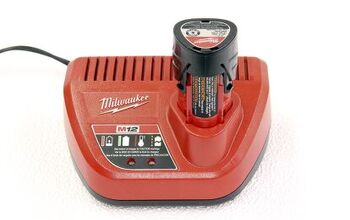All The Ways To Use An Aloe Plant

Aloe vera is a low-maintenance, beautiful plant that many people grow in their gardens and homes. The distinct leaves and shape make it stand out in any garden. You may understandably want to know all the ways to use an aloe plant.
The best ways to use an aloe plant include using it to reduce inflammation, help pain, treat sunburn, and moisturize your skin. Aloe vera gel is also an effective mouthwash when you mix it with baking soda and water. Ingesting aloe vera gel helps soothe gastroesophageal reflux disease (GERD) symptoms and constipation.
It’s important to drain the latex from aloe vera leaves before you extract the gel. Luckily, you can store extra aloe gel in the freezer for months, so you can get plenty of use out of it. Follow along as we explore all the ways to use an aloe plant.
The Six Best Ways To Use Aloe Vera
1. Boost Root Growth
Aloe vera is just as useful for you as it is for your other plants. For example, you can use aloe vera to help boost the growth of stubborn plants. That’s especially true if you extract the gel from your aloe plant.
It acts as a rooting hormone that can help your plants take root. This is equally helpful for outdoor and indoor plants that struggle to take root. Carefully cut open an aloe leaf, drain the sap into a cup, and remove the gel with a spoon or knife.
Place the gel in a small container that you can easily fit into your fridge. Keep in mind that this can get messy, so you’ll want to wash your hands right away. Next, simply apply the gel to the roots of some of your most stubborn plants to boost their growth.
2. Help With Digestion
According to the National Institute of Diabetes and Digestive and Kidney Issues (NIDDK), 60-70 million Americans suffer digestive issues. Many of them are sadly unaware that aloe vera is an incredible natural remedy with fewer side effects than other solutions. Aloe vera aids in digestion because it helps fight unhealthy gut bacteria, like H. pylori.
That said, it isn’t safe to consume all aloe plants. Aloe vera is the only type of aloe plant that benefits gut health. Never consume aloe vera that has been treated with pesticides and other harmful substances.
It’s also important to thoroughly wash aloe vera leaves before you consume them in any way. Aloe vera can help alleviate constipation and flush harmful toxins from the body. The best way to consume aloe vera is to juice it and drink it, as eating it can be unpleasant.
3. Clear Your Skin
Acne affects up to 50 million Americans each year, according to the American Academy of Dermatology. Prescription treatments are often necessary, but natural remedies like aloe vera have fewer side effects. All you must do is apply aloe vera gel to your skin to experience the benefits.
Aloe vera can moisturize and exfoliate your skin, both of which help fight acne. You can even prepare aloe vera face masks, depending on how you harvest the gel. The gel is located beneath the skin, but you must drain the sap before you can access it.
Ideally, you should extract a lot of gel at once, so you can store it for use many times. That said, you must check and make sure you aren’t allergic to aloe vera before you put it on your skin. It’s a rare allergy, but the last thing you want is to wind up at the hospital because of a natural skin treatment.
4. DIY Mouthwash
Making a DIY mouthwash from scratch is quite rewarding. Aloe vera gel is one of the best natural substances with which to make homemade mouthwash. First, simply extract the juice from beneath the skin using the steps mentioned above.
Extract one cup’s worth of aloe vera juice for the best results, or at least as close to that as you can get. Slowly mix one cup of aloe vera juice with ½ cup distilled water and 2 teaspoons of baking soda. You can add peppermint or chamomile for flavor, but that is optional.
You may need to shake and stir your DIY mouthwash each time you use it. Otherwise, the baking soda may clump up.
5. Reduce Inflammation
Aloe vera is known for its anti-inflammatory qualities, and that’s among the best benefits. Whether it be inflammation from a rash, sunburn, or injury, aloe vera gel can often provide relief. Aloe vera contains 75 properties that have benefits spread across enzymes, minerals, and vitamins.
For example, aloe vera leaves contain vitamin B12, choline, selenium, chromium, zinc, and glycoprotein. The combination of these properties helps provide pain relief and reduce inflammation. Even the fatty acids within aloe vera help inflammation, such as campesterol and lupeol.
While you can buy aloe vera gel, it’s more rewarding to harvest it from your plant. That way, you can control the density, consistency, and strength of it.
6. Improve Scalp Health
Having a dry scalp is uncomfortable and inconvenient. It can even embarrass some people who struggle with dandruff, even if it’s nothing to be ashamed of. Luckily, you can apply aloe vera to your scalp to fight dry skin and dandruff.
That said, this method can get a little bit messy, but the benefits of it are worth it. Simply put the gel on your head and gently work it into your scalp. Set a timer and let the gel sit on your scalp for 30-60 minutes.
Once the timer goes off, you can rinse your scalp to wash the aloe vera away. Some people mix aloe vera gel with tea tree oil to get better results.
Who Should Not Use Aloe Vera?
You should not use aloe vera if you are pregnant or breastfeeding. It’s also important to avoid ingesting aloe vera or applying it topically if you are allergic to it. Young children can use aloe vera topically but should avoid ingesting it until they're 12 years old or older.
It’s also recommended that you avoid consuming aloe vera if you have kidney problems. Aloe vera affects blood sugar, so it may interact with some medications, especially if you have diabetes. Consult your doctor before ingesting aloe vera if you aren’t sure if it’s safe for you.
Summing It Up
One of the best ways to use aloe vera is to harvest the gel and apply it to a plant’s roots to boost growth. You can also consume aloe vera gel to alleviate heartburn, constipation, and other digestive issues. Aloe vera also works as a great DIY mouthwash and skin moisturizer.
Related Guides:

Nick Durante is a professional writer with a primary focus on home improvement. When he is not writing about home improvement or taking on projects around the house, he likes to read and create art. He is always looking towards the newest trends in home improvement.
More by Nick Durante














![The 10 Best Table Saws - [2022 Reviews & Buyer's Guide]](https://cdn-fastly.upgradedhome.com/media/2023/07/31/9070645/the-10-best-table-saws-2022-reviews-buyer-s-guide.jpg?size=350x220)












